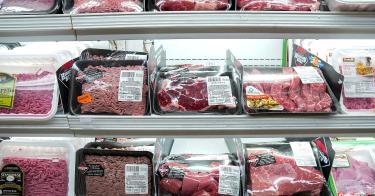Coronavirus concerns have made trips to the grocery store stressful enough. Finding fewer choices and higher prices for meat and poultry only makes matters worse.
This shortage is a result of a bottleneck at meat-processing plants due to COVID-19-related worker illnesses and even deaths. While this bottleneck appears to be easing, these problems have put the meat supply system in the spotlight, especially the federal meat inspection system.
The current system creates barriers for the sale of meat by limiting the types of processing facilities whose meat can be sold across states lines (interstate commerce), and even within a state’s borders (intrastate commerce).
Specifically, only meat from federally-inspected facilities can be sold in interstate commerce. State-inspected meat, with limited exception, can only be sold in intrastate commerce. Making matters worse, 23 states don’t have state-inspected facilities.
There are also custom slaughterhouses that don’t have the same inspection requirements as federal and state facilities. Federal law prohibits the sale of custom-slaughtered meat altogether, even within a state’s borders. These facilities provide services for people who want an animal slaughtered or processed for their own personal use.
As a result of these barriers, farmers are sometimes required to travel long distances to find meat processing facilities to meet their needs. This burden is costly and time-consuming.
Congress needs to knock down these barriers that hurt farmers and American families.
Let’s start with state-inspected facilities. There are 27 states that operate U.S. Department of Agriculture-approved state meat and poultry inspection programs. As explained by the USDA, this means the state programs meet and enforce requirements “at least equal to” those imposed under the Federal Meat Inspection Act, Poultry Products Inspection Act and Humane Methods of Slaughter Act of 1978.
However, despite this equivalency, meat from these state-inspected facilities may only be sold in intrastate commerce. This makes no sense. Congress should remove this prohibition on the sale of state-inspected meat and poultry products in interstate commerce. There is bipartisan support for a piece of legislation called the New Markets for State-Inspected Meat and Poultry Act that would do this.
Then there are custom slaughterhouses. Custom-slaughtered meat should be able to be sold in intrastate commerce. There is bipartisan support for a bill called the Processing Revival and Intrastate Meat Exemption Act (PRIME Act) that would achieve this objective.
Critics of such a reform make vague allegations that it would threaten food safety. It’s true that these facilities are not subject to the same level of inspection as the federal and state facilities. Nonetheless, they do have to meet federal sanitation and facility maintenance requirements, along with the federal law on humane slaughter.
There’s also no reason to assume that the federal government is the only way to protect the health and safety of in-state residents engaged in intrastate commerce. For those legislators who believe even slightly in principles of federalism, the commercial intrastate sale of custom-slaughtered meat should be easy to support.
Once custom-slaughtered meat is allowed to be sold commercially, the regulatory regime in most states would likely change to address any health and safety concerns regarding custom slaughterhouses. Besides, these businesses would have significant incentive to ensure the safety of their meat. They certainly don’t want to expose themselves to liability concerns and potential long-term damage to their reputation and profitability.
These reforms may not have an immediate impact during the pandemic. But they would change market dynamics, create more options for farmers and consumers, and increase meat-processing capacity. They would also help create a meat supply system that is better positioned to address a possible second wave of COVID-19 or future pandemics.
Today, the entire structure of the meat-processing industry is a reflection of an inflexible federal regulatory system. But tomorrow, through these proposed reforms, the industry would better reflect market forces and be more responsive to the needs of Americans.
This piece originally appeared in The Hill on 6/13/20



